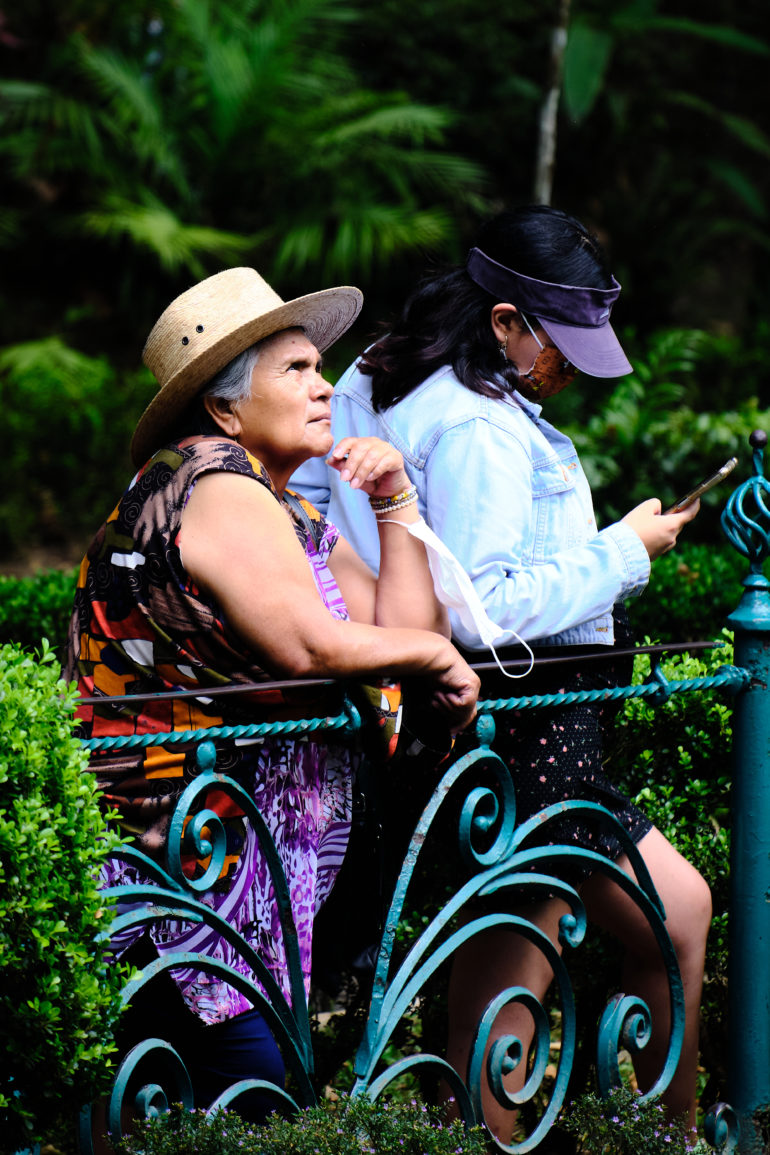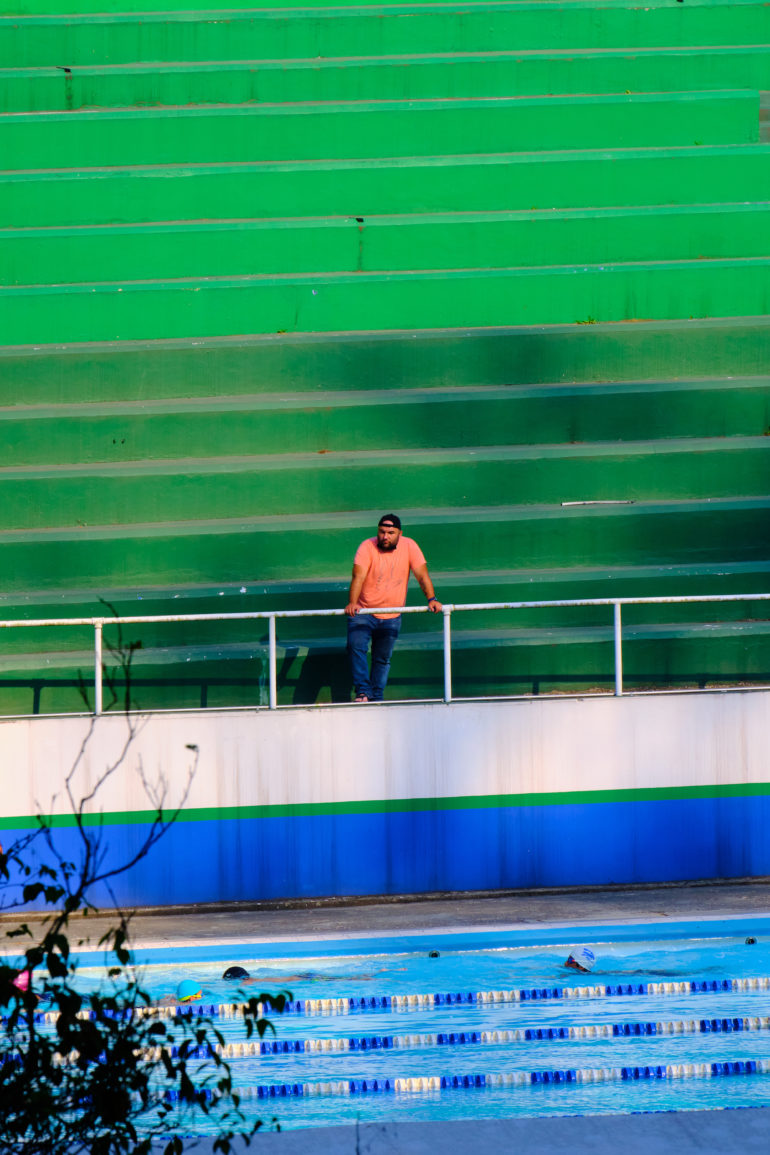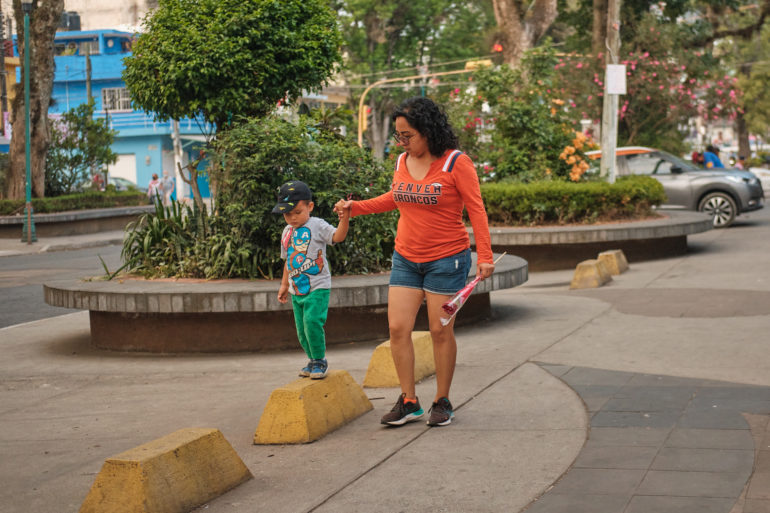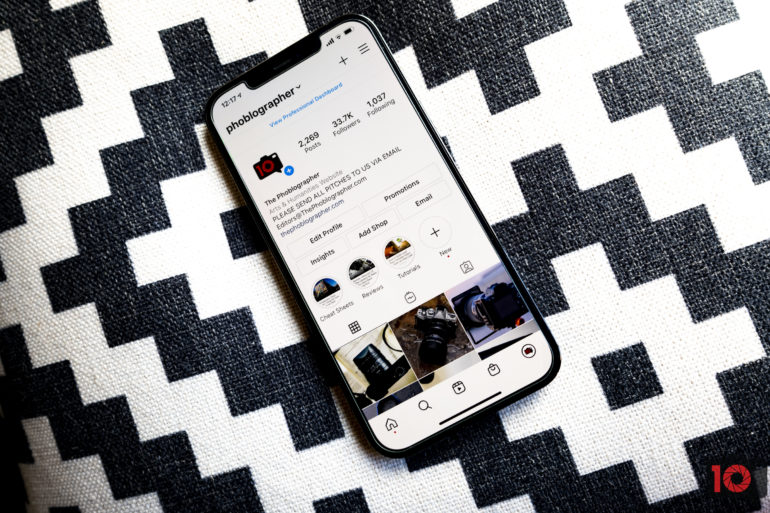
People often cite creativity as the number one skill required to make compelling photographs. I agree that what you see in your mind’s eye leads to making the best photographs. However, in the world of street photography, our ability to see what’s in front of us is integral to the strength of our images. That means we must learn to be as observant as possible, ensuring we don’t miss the shot.
We hate banner ads too. Download our app for iOS, iPad, and Android and get no banner ads for $24.99/year.
When you consider some of the most prolific street photographers in the game like Matt Stuart, Dimpy Bhalotia, et al., they have one thing in common: they see things others don’t. Part of that will be their natural talent, something we’re unable to explain. Still, for the most part, it’s down to their ability to focus on their environment and identify possibilities that aren’t immediately apparent. This type of attention to detail doesn’t happen overnight. It takes years to develop and a lot of trial and error.
While the longevity required to perfect the craft may overwhelm novice street photographers, there’s good news. There are simple steps anyone can take to improve concentration and the ability to observe while making street photographs. Below I’ll share some techniques that’ve allowed me to hone my craft over the last 11 years.
Use the Pomodoro Technique for Street Photography

The Pomodoro Technique is the act of focusing on one task for 25 minutes and then taking a break for five minutes. After four rounds of 25 minutes, you take a 30-minute break. In this example, it would mean putting 100% of your attention into making street photographs for 25 minutes at a time. No distractions, no stopping for coffee, or chatting with passers-by, just your full attention on scouting the scene and making images.
When using this technique, I have experienced somewhat of a placebo effect. I become hyper-focused on my environment and spot more compelling images than when shooting without a time frame. During the five-minute break, I put my camera down. Don’t be tempted to look at your images: doing so prevents you from being able to disconnect from the practice. Use that five minutes to listen to some music or do some breath work, getting you refueled for your next round of 25.
Use a Notebook and Pen for Street Photography

This technique may seem a little leftfield, but trust me when I say it works. When you arrive at the area you intend to make street photographs, before taking out your camera, pick up a notepad and pen. Sit for 10 minutes or more, and note all the potential scenes that may arise in front of you. Is a loving couple likely to embrace? Are children going to start running in the wind? Maybe you can pick up on the tone of a conversation and anticipate laughter. None of these things may happen, but by predicting them and validating them through writing them down, you’re making your brain active and aware of the environment.
Don’t Shoot Street Photography All Day Long

Allow me to preface this by saying I love shooting street photography all day long. I love walking and exploring new places, and my Fujifilm XT2 is the perfect companion. However, I know I’ll eventually get physically and mentally fatigued, and be unable to make strong street photographs on those long days.
So, if I’m determined to create quality, I shoot for no more than two hours, which tends to be my limit through the week anyway due to other commitments. I know I will have enough energy to concentrate and keep optimal focus in those two hours. So if you want to become more observant, don’t push yourself too hard by shooting all day. Shoot in small time blocks.
Limits Distractions

To focus properly, we must limit distractions. Whenever I shoot street photography, my phone goes in my bag, zipped up, requiring effort to take out. I don’t listen to music; it can take my mind on a completely different journey, distracting my focus from reality. I also put my phone on Do Not Disturb so I don’t receive unwanted calls. (iOS and Android allow friends and family to bypass that in times of emergency.)
One of the best investments I made was getting an Apple Watch SE. I know many street photographers like to use Maps, which means getting your phone out. But the Apple Watch has Maps built-in, and I can navigate without constantly looking at my phone and away from the scenes. If you use a smartphone to shoot street photography, go on Airplane mode to limit distractions.
Final Thought: Be Patient
There’s no quick ride to becoming more observant when practicing street photography. This craft takes years to get consistently good photographs. Don’t let that put you off. The process of consistently improving is one of the best things you can do. It enriches your life. So be patient, and know it’s going to get better.
What techniques do you use to be more observant in street photography? How long did it take before you began getting consistently good street photographs? Let us know in the comments. Thanks for reading.






